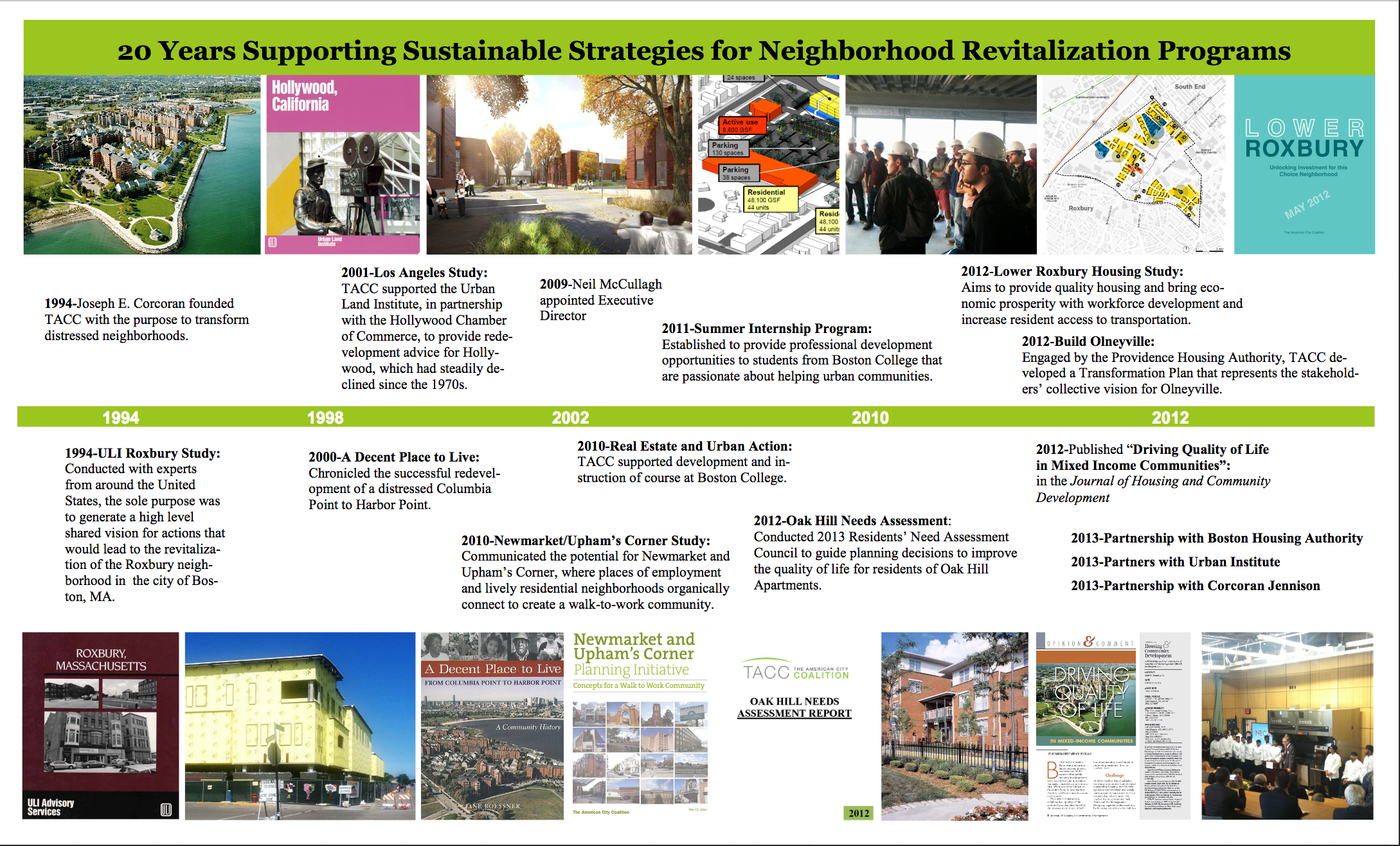
Founded in 1994, The American City Coalition grew out of lessons learned from the development of the earliest mixed-income communities in the United States. The inspiration for our work is grounded in the story of Columbia Point, a 1,500-unit public housing project, in Dorchester, MA.
By the 1970s, this federally funded housing development had failed. Seeing an opportunity to create better housing in his native Dorchester, our founder, Joseph E. Corcoran, working with his development company, Corcoran Mullins Jennison, undertook the conversion of the property into 1,238 units of mixed-income housing. The neighborhood was renamed Harbor Point on the Bay.
In realizing this pioneering residential neighborhood, Corcoran partnered with a coalition of residents and community organizations to ensure that local knowledge and quality of life needs shaped the future of Harbor Point. Today, the conversion of Columbia Point into Harbor Point remains a model for the deconcentration of poverty and the preservation of affordable housing; the project informed the United States Department of Housing and Urban Development’s HOPE VI plan and, eventually, the Choice Neighborhoods program.
Corcoran calls upon all of us to work together to alleviate the concentration of poverty in distressed neighborhoods. In his Founder’s Statement, Corcoran articulates his inspiration for founding The American City Coalition:
With the program support of our mayors, governors, the President, Congress, and many philanthropists–we can cure inner city poverty. How? Not by improving education and daycare, not by job training and creating job opportunities, not by making the streets and the transit safe, not by creating new, safe commercial areas or by building more attractive housing or focusing on diversity. It is not by making any of these efforts alone; it is by doing them all, at the same time, focused on distressed neighborhoods.
It can be done–but only in partnership with the people who now live in these distressed communities. Initiatives must grow from their resident’s experience and knowledge. Policy makers and implementers must listen to communities and be responsive; it is the only way to empower real partnerships that harness focused investment.
TACC develops integrated approaches that drive public and private resources to work on behalf of low-income residents in undeserved neighborhoods. With one in three Americans in inner cities living in poverty and high concentrations of poverty and insufficient economic opportunity even in neighborhoods of our country’s most successful cities, no one organization can meet the complex needs of residents and communities alone. TACC is committed to bringing together the resources of the private and public sectors to focus on the neighborhoods with the greatest need.